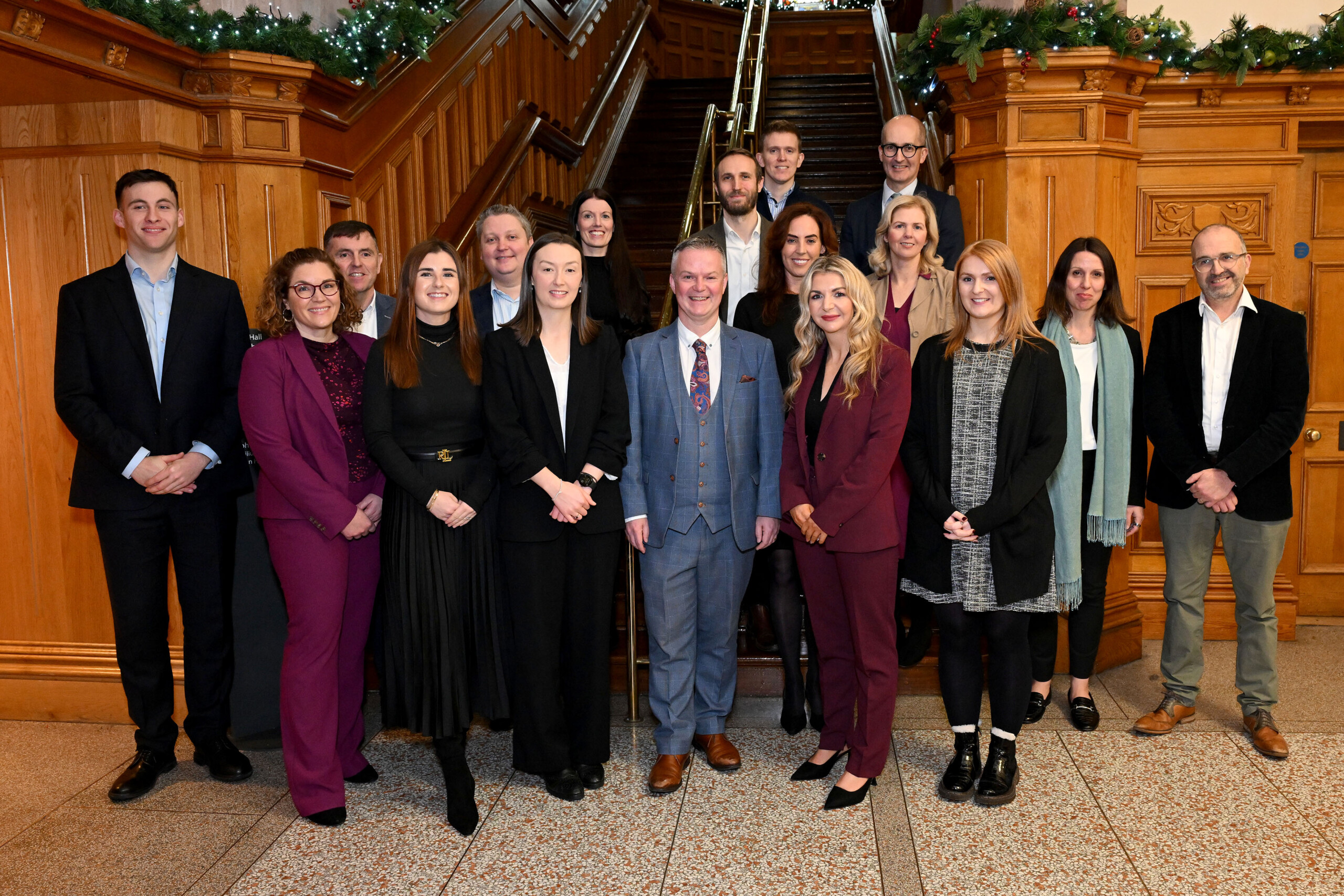
The global re-set – training and development for a better world
 Jane Rexworthy, Executive Director, People 1st International
Jane Rexworthy, Executive Director, People 1st International
The Future of Jobs 2020 report by the World Economic Forum found that COVID-19 has caused the labour market to change much faster than expected and it would appear that ‘the future of work,’ one where digital skills are key, has already arrived. These digital skills are crucial to post-pandemic recovery in every region of the world, and will also accelerate the adoption of many innovative practices in digital and technical communications.
In conversations I have been having recently with our global network at People 1st International, I have been hearing about the importance of developing these technical skills, as well as a diverse range of new training and development initiatives that are being implemented to help people to up-skill or to re-deploy their skills to other sectors.
And, on a positive note, it’s clear that we have the opportunity to create a fairer, more equitable world of work based on investment in diversity, good pay, better training and improved job and career prospects. It’s also evident that the re-set can also be used to devise strategies for the future, and to train people with the skills required to help achieve these plans.
Importantly, this will require a strategic, planned and co-ordinated approach with key stakeholders such as employers, governments, banks, NGOs and training providers – all working together in partnership. Here are four areas where I believe this collaborative approach will help to ensure a more positive future:
Empowering the ‘COVID Generation’ – re-shaping the future
Today there are 1.8 billion people between the ages of 15 and 35, a quarter of the global population. Crucially, almost nine out of 10 people under 30 live in emerging and developing economies, particularly in the Middle East and Africa. And, it’s these young adults across the world who are bearing the brunt of job losses, as well as a potential lack of opportunities into the future.
At the same time, it’s critical that this generation are empowered to help drive the transformation and change required now and into the future. This means that they must be fully supported at every level. By helping them to develop greater resilience and become more flexible/adaptable, as well as improving their social/emotional and problem-solving skills, their confidence will in turn increase as will their levels of empowerment. Also, by supporting them at a psychological and emotional level, they will be better able to step into the leadership roles necessary to help to drive the change and transformation required. In other words, by investing in this generation we are investing in helping to re-shape the future of the planet.
SMEs and Digitalisation – less risk, more opportunities
Strengthening the dynamics of micro, small, and medium-sized enterprises (MSMEs) through innovation will be key to revitalising Southeast Asian economies devastated by the pandemic, according to a new report from the Asian Development Bank. And, in its latest policy brief, the APEC Policy Support Unit with support from the Asia Foundation recommends that policymakers help to support and reinforce digital solutions to make it easier for small businesses to operate on-line.
Naturally it’s not just Asia as small businesses across the world have been significantly impacted by Covid. But, on a positive note, we are already seeing examples of support from governments to help them to operate online, including from within our own network. For example, in the Middle East the Handicraft Association in Jordan have now moved all their sales to an e-commerce platform funded by the government, to help compensate for the lack of business from tourists. The Jordanian government is now also planning to help up-skill and train these craftspeople with IT skills, so that they can successfully run and build their own e-commerce operations.
Improved social inclusion and diversity
It’s noticeable that the pandemic has disproportionately impacted millions of low-skilled workers, and the recovery must include a co-ordinated reskilling effort to ensure accessible and job-relevant learning to help them to return to work. Additionally, the re-set offers the opportunity to support vulnerable workers as well and to build upon examples of best practice in inclusion already being used by employers such as Lemon Treen Hotels in India, which has helped to shift disability related stigma by employing waiters with Downs syndrome.
Critical to narrowing the digital gender divide is ensuring that women are trained in digital skills. Chile already took the lead in the framework of APEC when it defined `Women, SMEs and Inclusive Growth` and `Digital Society` as two of its key priorities back in 2019. In fact, there are other examples of APEC economies that are moving towards greater gender inclusion. For example, the NiñaSTEMpueden initiative in Mexico highlights how education systems are important in helping to change and influence stereotypes through role modelling and career orientation for school-aged girls.
Innovation and out-of-the-box thinking for learning pathways
Never has there been a better time for innovation, out of the box thinking and creative approaches. New and agile approaches can also be applied to the development of non-conventional learning pathways. For instance, The United Arab Emirates in cooperation with the Dubai Future Foundation has developed the Smart City University. This is a blockchain-powered decentralized learning platform that supports the development of digital skills. It aims to increase the percentage of digitally skilled talent in the UAE by sidestepping traditional institutions. Individuals can create personalized educational paths which include hands-on work projects and in-person or online workshops that have digital certifications.
Conclusion
I don’t believe that we necessarily need re-invent the wheel when it comes to training and development beyond Covid. There are already pre-existing initiatives and excellent examples of best practice that are very relevant for these times that can be adapted and shared. For example, The African Development Bank’s Coding for Employment (CfE) e-learning platform already helps boost the digital skills of young people and has seen an increase of almost 50% in users since the pandemic. Or, Nigeria’s Click-On Kaduna program (launched in 2018) which helps young people to developing their socio-emotional skills, together with interactive coursework to facilitate leadership, problem solving, presentation, and interpersonal skills. It even incorporates mentorship activities and gender-separate cohorts to build confidence and improve communication skills for women.
Whilst helping people to acquire key digital and problem-solving skills is vital to the recovery, as is agility and resilience, there is another critical piece of the jigsaw: changing how we think about learning itself. To maximise our ability to gain new skills and to adapt to a fast-changing world, we all need to ‘learn to learn,’ and this means making continuous learning a necessary life-style choice.
Something else to bear in mind is that for all their efforts, NGOs, funding bodies and government agencies can’t simply wave a magic wand and create a post-Covid recovery. Home-grown entrepreneurship will also play a vital role. That’s something that Professor Rajesh Nair from the Asia School of Business has talked about, arguing that one of the keys to recovery will be building bottom-up ecosystems that support innovation and entrepreneurship. In other words, these are initiatives that are created and run by people on the ground, who are both participants and beneficiaries and that empower them to gain confidence and develop entrepreneurial skills. As he puts it, if you build an army of entrepreneurs, start-ups will follow.
It’s all very well saying that we need a strategic, planned and co-ordinated approach with key stakeholders such as employers, governments, banks, NGOs and training providers, but what are the practical building blocks for working in partnership post-Covid and is there a roadmap for a new style of more integrated co-ordination between these key stakeholders?
What we do know for certain is that this is a global issue, with the same or similar challenges being faced across the world. And with funding is being made available from a wide range of sources, the challenge is how global efforts – which are taking place on a massive scale and within a very condensed timeframe – can be better co-ordinated. Rather than re-inventing the wheel country by country, it would be far more efficient to share best practice and learn from each other to minimise duplication of effort and ensure that funding can be spent more effectively.
It’s evident that there is no lack of willingness to engage and share at a local, national and international level, so now is the time to ask ourselves what improved international collaboration might look like and identify the quickest and most effective way to develop the local capability required to do so.
In my experience, taking this to the next level is about creating simple but effective frameworks and toolkits and sharing next-stage concept notes based on generic models of best practice and learning that can be tailored locally. This approach will not only provide save time, it will also ensure that the funds are better spent.



